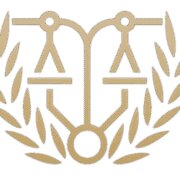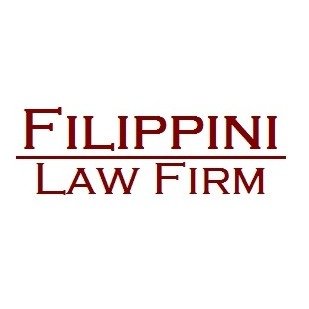
Best State, Local, and Municipal Law Lawyers in Illinois
Share your needs with us, get contacted by law firms.
Free. Takes 2 min.
Or refine your search by selecting a city:
List of the best lawyers in Illinois, United States

About State, Local, and Municipal Law in Illinois, United States
State, local, and municipal law in Illinois governs the operation and regulation of government entities at the state, county, city, and township levels within the state. These laws cover a wide range of issues, including but not limited to zoning, land use, public safety, taxation, administrative procedures, and government transparency. Local governments in Illinois have significant authority to create ordinances that reflect the needs and values of their specific communities, but these must still comply with both Illinois state law and the Constitution of the United States.
Why You May Need a Lawyer
There are many situations where legal advice or representation in state, local, and municipal law may be necessary. Common reasons include:
- Disputing local ordinances or fines, such as parking tickets or building code violations
- Resolving zoning or land use issues, especially when developing property or starting a business
- Appealing property tax assessments or understanding property tax obligations
- Addressing issues related to local government decision-making and public meetings
- Seeking access to public records under the Illinois Freedom of Information Act (FOIA)
- Challenging government actions or policies, including eminent domain or annexation
- Protecting individual rights where municipal laws and ordinances may impact freedoms
- Pursuing claims against a city, county, or state for personal injury or property damage
- Understanding municipal business licensing, permitting, or regulations
- Ensuring compliance with employment laws for municipal workers and public employees
Because local laws often vary significantly from one municipality to another, a lawyer with knowledge of Illinois and local government laws can help navigate these complexities.
Local Laws Overview
In Illinois, local governments have the authority to pass their own ordinances on matters such as public safety, property maintenance, noise, health and sanitation, and business licensing. The key aspects of local laws in Illinois include:
- Home Rule: Some cities and villages have "home rule" status, allowing them broader powers to govern local affairs without needing state approval.
- Zoning and Land Use: Local governments control how land is used and developed. This can involve residential, commercial, and industrial zoning, as well as rules for variances and special uses.
- Property Taxes: Municipalities, school districts, and counties levy property taxes. Assessment and appeals follow specific processes governed by state law with local implementation.
- Ordinances and Codes: Local governments adopt a wide array of ordinances covering building codes, health regulations, public nuisances, and public conduct.
- Public Records and Open Meetings: Illinois law requires transparency in government through open meetings and the right to access many public records.
- Licensing and Permitting: Businesses and individuals often need various licenses and permits to operate legally within a locality.
- Public Safety and Law Enforcement: Local police, fire, and emergency ordinances are enforced within municipal boundaries.
Understanding these local laws is crucial for anyone residing in Illinois or operating a business within the state.
Frequently Asked Questions
What is home rule, and how does it affect me?
Home rule gives certain municipalities in Illinois greater authority to govern themselves and pass local laws without explicit approval from the state legislature. If you live or own property in a home rule municipality, you may be subject to unique taxes, fees, or regulations.
How do I find out about local ordinances that apply to my community?
Local ordinances are published by each municipality and are often available on the city's or village’s official website. You can also contact the city clerk's office for access to municipal codes.
What can I do if I disagree with a zoning decision?
You may be able to appeal a zoning decision to a local zoning board of appeals or, in some cases, take legal action in court. Consulting a lawyer to review your situation and represent your interests is recommended.
How can I request public records from a local government in Illinois?
Under the Illinois Freedom of Information Act, you can submit a written request to the relevant public body. Each municipality has a process and contact person for handling these requests.
What are common reasons I might need a permit or license from my local government?
Permits and licenses are often required for activities such as home renovations, opening a business, hosting public events, or selling certain goods. Requirements vary widely depending on location and the nature of the activity.
Can I challenge a property tax assessment?
Yes, property owners have the right to appeal an assessment. The process involves submitting documentation to the local assessor or Board of Review, presenting your case, and potentially pursuing further appeals if necessary.
What should I do if I receive a code violation notice?
Read the notice carefully to understand the alleged violation. You may have the right to contest the violation at a hearing or comply and correct the issue. Consulting a lawyer can help you determine your best course of action.
Who enforces municipal ordinances?
Local police officers, code enforcement officers, or building inspectors are typically responsible for enforcing municipal ordinances and issuing citations or fines as necessary.
How can I participate in local government decision-making?
You can attend city council or village board meetings, voice your opinion during public comment periods, join advisory committees, and vote in local elections.
Can I sue a local government or municipality?
Yes, but there are specific procedures and limitations, such as notice requirements and liability caps. A lawyer familiar with municipal law can advise on your rights and the steps involved.
Additional Resources
If you need information or assistance related to state, local, or municipal law in Illinois, the following resources can help:
- Illinois Attorney General’s Office: Provides consumer protection, public interest, and government transparency resources.
- Illinois Municipal League (IML): Offers information and support for municipalities and those interested in local governance.
- County and City Clerk Offices: These local offices provide access to public records, permits, elections information, and ordinances.
- Local Bar Associations: Many local bar associations offer lawyer referral services and legal clinics for community members.
- Illinois Freedom of Information Act (FOIA) Officers: Every public body has a designated officer to handle FOIA requests.
- Illinois Property Tax Appeal Boards: Assists with property tax disputes and appeals processes.
Next Steps
If you require legal help with state, local, or municipal law in Illinois, consider the following steps:
- Identify the specific legal issue and collect any relevant documentation or notices you have received.
- Research local ordinances or regulations that pertain to your situation through municipal websites or clerk’s offices.
- Contact a legal professional who specializes in state, local, or municipal law in Illinois to discuss your concerns.
- If cost is a concern, seek out local bar association referral services or legal aid organizations for assistance.
- For government actions or administrative matters, ensure you adhere to all deadlines for appeals or hearings.
- Engage with your local government through public meetings if your concern relates to policy or community initiatives.
Remember, state, local, and municipal laws can be complex and differ from one jurisdiction to another. Professional legal advice is invaluable to ensure your rights are protected and your legal matters are properly addressed.
Lawzana helps you find the best lawyers and law firms in Illinois through a curated and pre-screened list of qualified legal professionals. Our platform offers rankings and detailed profiles of attorneys and law firms, allowing you to compare based on practice areas, including State, Local, and Municipal Law, experience, and client feedback.
Each profile includes a description of the firm's areas of practice, client reviews, team members and partners, year of establishment, spoken languages, office locations, contact information, social media presence, and any published articles or resources. Most firms on our platform speak English and are experienced in both local and international legal matters.
Get a quote from top-rated law firms in Illinois, United States — quickly, securely, and without unnecessary hassle.
Disclaimer:
The information provided on this page is for general informational purposes only and does not constitute legal advice. While we strive to ensure the accuracy and relevance of the content, legal information may change over time, and interpretations of the law can vary. You should always consult with a qualified legal professional for advice specific to your situation.
We disclaim all liability for actions taken or not taken based on the content of this page. If you believe any information is incorrect or outdated, please contact us, and we will review and update it where appropriate.
Browse state, local, and municipal law law firms by city in Illinois
Refine your search by selecting a city.








